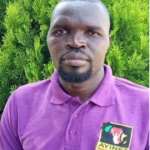Nobel Peace Prize awarded Nadia Murad and Dr Denis Mukwege; International Forums on Conflict-Related Sexual Violence all contribute to making the fight against impunity a priority on the international agenda. Since 2002, the year of entry into force of the Rome Statute which is the main instrument supporting humanitarian law and human rights, the civil war in Eastern-DRC has caused millions of direct and indirect victims. The scale of violence inflicted on women displaced by the war is well documented.
On 4th February 2021, the International Criminal Court declared Dominic Ongwen, one of the leaders of the Lord’s Resistance Army (LRA), guilty of 61 crimes against humanity, and among them was the newly recognised crime of “forced pregnancy”. During armed conflicts, sexual violence is used as a weapon and is part and parcel of conflict strategy. It has become endemic and almost systematic in contemporary conflicts. Such violence is a violation of international humanitarian law and human rights. It is a deep and singular trauma, with multidimensional and long-term consequences for the victims. Unfortunately, such abuses still go largely unpunished, partly because they are part of a wider system involving the geopolitical, military, and economic spheres.
The panel will discuss the leverage provided by the International Criminal Court in such cases. We will examine how, in a fragile environment, access to justice remains a real challenge. We will also reflect on the tools that can help survivors in combating impunity, human rights violations and mitigate gender-based violence in future conflicts.






